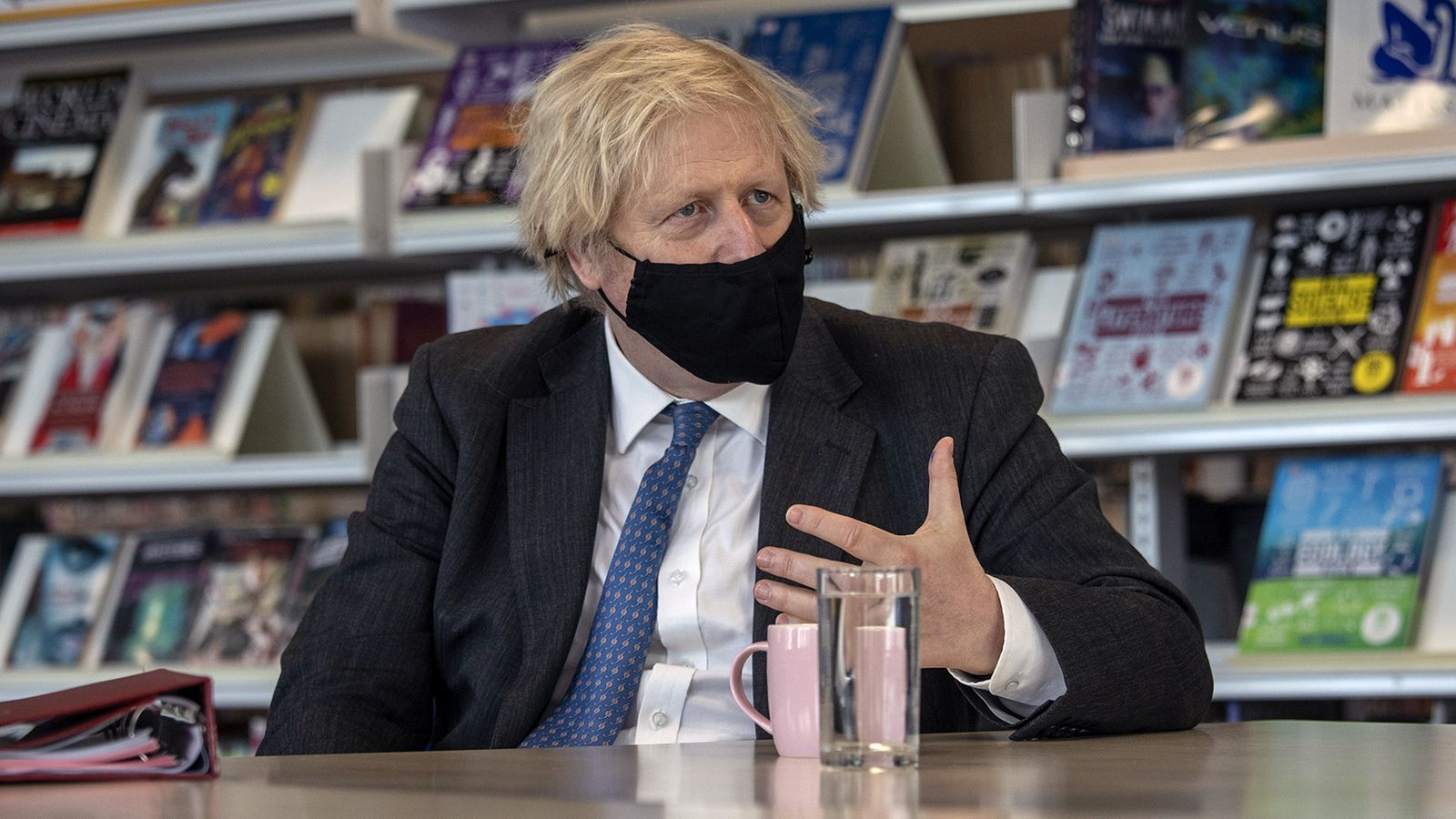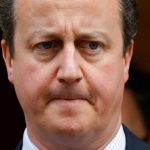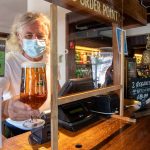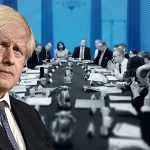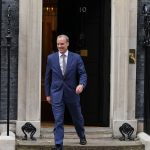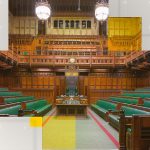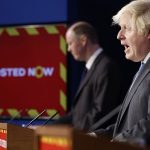Prime Minister Boris Johnson is “very optimistic” that he will be able to remove all coronavirus restrictions in England by 21 June under his four-stage plan for lifting lockdown.
Under his roadmap for easing COVID measures, the prime minister hopes “all legal limits on social contact can be removed” under the last of those four stages, to come on 21 June at the earliest.
Live COVID news from UK and around the world
Asked how confident he was of reaching that target, Mr Johnson said on Tuesday: “I’m hopeful but obviously nothing can be guaranteed and it all depends on the way we continue to be prudent and continue to follow the guidance in each stage.
“That’s why it’s so important to proceed in the cautious way that we are.
“I think people do understand it, they can see the logic of what we’re trying to do.
“But, genuinely, because of the immense possibilities now of the vaccination rollout, because science has given us this way of creating a whole shield around our population, we can really look at that 21 June date with some optimism.
“I’m very optimistic we’ll be able to get there.”
Some Conservative MPs have complained the prime minister’s lockdown-lifting roadmap, beginning with the return of all pupils to schools on 8 March, doesn’t remove restrictions fast enough.
Meanwhile, some scientists have expressed scepticism about whether Mr Johnson will be able to remove all COVID restrictions from 21 June.
But Mr Johnson, speaking on a visit to a south London school on Monday, said his plan delivered the “right” pace for easing restrictions – with a five-week gap between each of the four stages of lifting measures.
“Some people will say we are going to be going too fast, some people will say we’re going too slow,” he said.
“I think the balance is right, I think it’s a cautious but an irreversible approach which is what I think people want to see.
“And the reason for the gap is it gives us time to look at the impact of each of the changes, each of the relaxations, the opening ups that we’re doing.
“Getting kids back into school – massively important for the country – we need time to assess what that does to the disease, the prevalence of COVID.
“And then again, when you look at 12 April openings, you need to look at the impact of that – what does non-essential retail do, the opening of outdoor hospitality and so on.
“You’re adding all the time to the budget of risk and you need time to observe the impact of that. So we think it’s a sensible approach, it’s a prudent approach.
“But, also, I think people can see it goes on irreversibly and we open up on 21 June in a way I don’t think people would have really have thought possible had it not been for the rollout of the vaccinations.
“It’s those vaccinations, that massive programme, led by the NHS, that has made all the difference.”
Subscribe to the Daily podcast on Apple Podcasts, Google Podcasts, Spotify, Spreaker
Earlier on Monday, Health Secretary Matt Hancock warned the timeline for unlocking coronavirus restrictions won’t be sped up – and could even be slowed as ministers remain “vigilant” against infection rates.
He told Sky News that ministers were “absolutely determined” to come out of England’s third national lockdown “as fast as safely possible, but no faster”.
